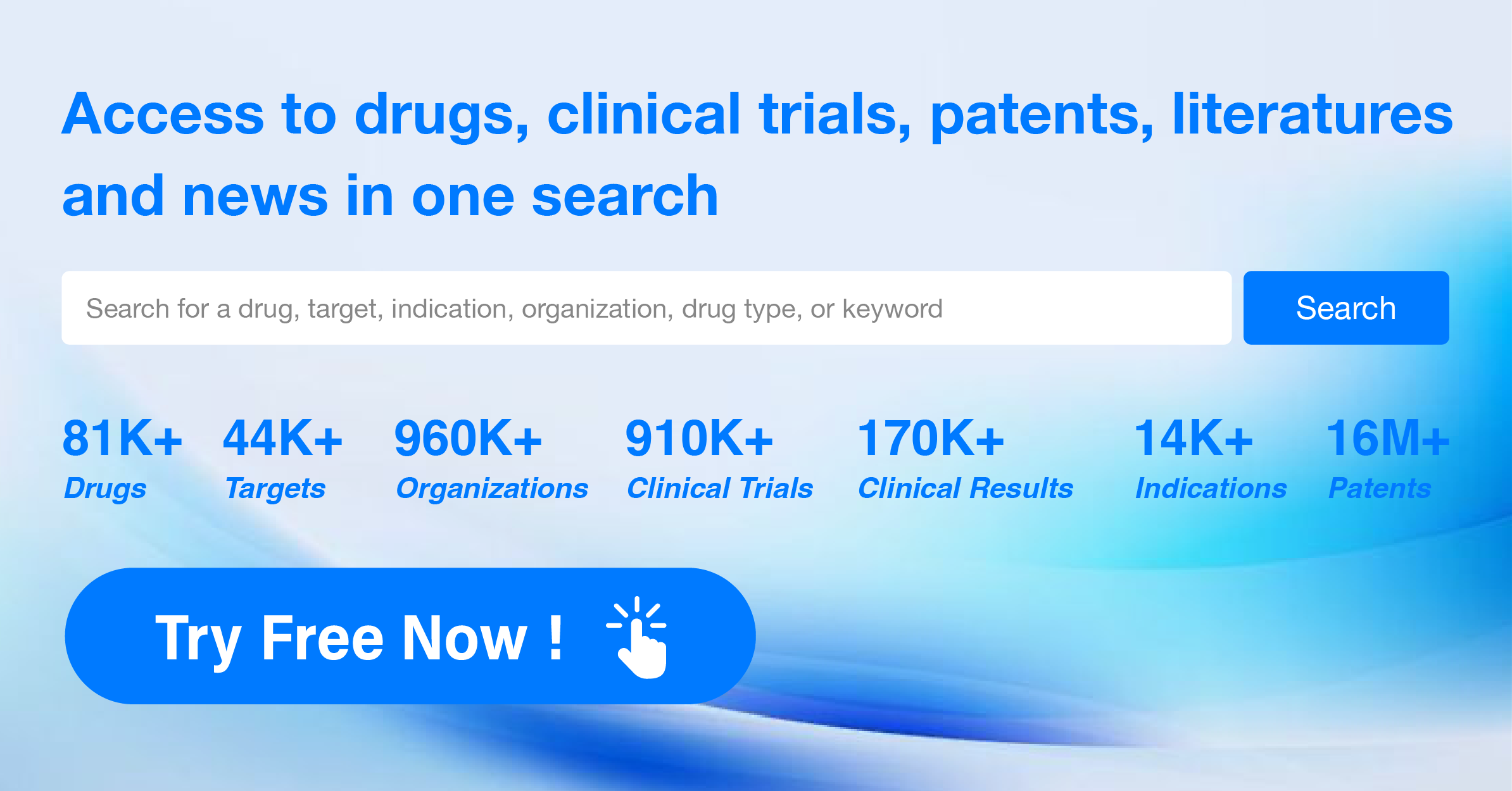Pharma Frontiers: Daily Digest of Global Pharmaceutical News - April 30
1.Daiichi Sankyo/AstraZeneca's Enhertu Phase III Clinical DESTINY-Breast06 Results Positive
On April 29, Daiichi Sankyo announced that the Phase III clinical trial for Enhertu, DESTINY-Breast06, achieved positive top-line results. The results demonstrated statistically significant and clinically meaningful improvement in progression-free survival (PFS) for the primary trial population of HR patients who had received one or more lines of endocrine therapy, compared to standard of care chemotherapy.Additionally, improvement in PFS was also observed in the entire trial population, including patients with HER2-low and ultra-low expression (IHC 0; IHC >0 <1+). While overall survival (OS) data are still immature, early trends indicate an improvement in OS compared to standard of care chemotherapy in both the HER2-low expression breast cancer patients and the overall population. The trial will continue to further evaluate OS and other secondary endpoints. The safety profile was consistent with observations from other trials, with no new safety signals identified. Detailed results will be shared at an upcoming medical conference. The DESTINY-Breast06 (DB06) is a Phase III clinical trial for HR-positive HER2-low expressing breast cancer, involving patients with metastatic breast cancer who progressed after endocrine therapy and are chemotherapy-naive. The main endpoint of the study is the PFS for the HR-positive, HER2-low patient cohort, measured by blinded independent central review (BICR). Key secondary endpoints include the OS for the HER2-low expressing patients, as well as PFS and OS for the overall trial population (HER2-low and ultra-low expressing).
2.Keymed Biomedical Announces Successful Phase III Study of IL-4Rα Monoclonal Antibody for Seasonal Allergic Rhinitis
On April 28, Keymed Biomedical announced that its Phase III clinical study of Stapokibart, an anti-IL-4Rα monoclonal antibody for the treatment of Seasonal Allergic Rhinitis (SAR), has completed the double-blind treatment period with data unblinding and statistical analysis, achieving its primary endpoint. Stapokibart is a high-efficiency, humanized antibody that targets IL-4Rα, effectively blocking the signaling of both IL-4 and IL-13, which are key cytokines involved in Type II inflammation. In December 2023, the application for marketing authorization of Stapokibart for the treatment of moderate-to-severe atopic dermatitis in adults was accepted by the China National Medical Products Administration and included in the priority review process.
The clinical trial was a multicenter, randomized, double-blind, placebo-controlled, parallel-group Phase III study primarily designed to confirm the efficacy and safety of Stapokibart injection in adult patients with seasonal allergic rhinitis poorly controlled by nasal corticosteroids or other treatments. During the pollen season, the study enrolled 108 subjects who were stratified by research center and randomized in a 1:1 ratio to receive Stapokibart 600mg (initial dose) + 300mg or a placebo treatment every two weeks, for a total of two treatments. The safety observation period was eight weeks. The primary endpoint was the average change from baseline in daily retrospective Total Nasal Symptom Score (rTNSS) at two weeks of treatment. The results of the Phase III clinical trial were positive, with the primary endpoint fully met. Stapokibart showed significant superiority over the placebo group with a highly significant statistical difference and exhibited good safety.
3.The Phase 3 clinical trial of Antikang Biotechnology's new anti-influenza drug, ADC-189, has been successful
Andi Kang Biotechnology announced on April 29 that its new anti-influenza drug ADC-189 has successfully reached the primary endpoint in its Phase 3 clinical trial for the treatment of type A and B influenza in adults and adolescents, demonstrating excellent safety and efficacy. Influenza patients require only a single dose of the medication to achieve significant results. Furthermore, Andi Kang Biotechnology reported that since 2024, it has completed hundreds of millions of yuan in Series A funding. ADC-189 is a Class 1 innovative drug autonomously designed and developed by Andi Kang Biotechnology, intended for clinical use in the treatment of type A and B influenza in individuals aged two years and older. As a cap-dependent endonuclease inhibitor, ADC-189 inhibits the cap-dependent endonuclease in the influenza virus, thereby blocking the transcription of the virus's own mRNA and eliminating its ability to replicate. Existing research data indicate that ADC-189 has significant antiviral activity against type A, type B, and highly pathogenic avian influenza viruses, along with a favorable safety profile. Additionally, ADC-189 benefits from not being affected by food intake and enhanced safety. The achieved primary endpoint comes from a multicenter, randomized, double-blind, placebo-controlled Phase 2/3 clinical study that aimed to evaluate the safety and efficacy of ADC-189 in treating uncomplicated acute epidemic influenza in adolescents and adults, with the primary endpoint being the relief time of seven flu symptoms (cough, sore throat, headache, nasal congestion, fever or chills, muscle or joint pain, and fatigue).
4.Hengrui Initiates Phase III Clinical Trial of Long-Acting Insulin and GLP-1 Analog Combination Formulation
On April 28th, the Drug Clinical Trial Registration and Information Publicity Platform revealed that Hengrui has commenced a randomized, open-label, parallel, controlled, goal-achieving Phase III clinical trial (CTR20241529) for HR17031 injectable. This study aims to compare the efficacy and safety of HR17031 injectable solution with insulin glargine among Type 2 diabetes patients with poor glycemic control, who are treated with metformin alone or in combination with another oral hypoglycemic agent. The primary endpoint is the change in HbA1c from baseline at week 26. HR17031 injectable solution is a proprietary fixed-ratio combination formulation of basal long-acting insulin and a GLP-1 analog developed by the company, intended for the treatment of Type 2 diabetes. In July 2021, HR17031 received clinical approval in both the United States and China.
The pathogenesis of diabetes is complex, involving abnormalities in skeletal muscle, pancreas, liver, kidneys, gastrointestinal tract, and adipose tissue. Hypoglycemic drugs mainly act by increasing insulin secretion and sensitivity, enhancing glucose uptake, reducing glucose absorption, increasing urinary glucose excretion, and delaying gastric emptying.
Hengrui Pharmaceuticals offers a variety of antidiabetic options covering multiple pathogenic mechanisms of diabetes, providing patients with multiple choices. Combination formulations, even at the same or lower doses of insulin, can achieve better glucose-lowering effects compared to basal insulin alone and can reduce the risk of hypoglycemia and avoid adverse effects such as weight gain associated with insulin therapy, thus offering greater benefits to patients with Type 2 diabetes.
5.Lupeng Pharmaceutical's new-generation BTK inhibitor, LP-168 tablet, is proposed for inclusion as a breakthrough therapy designation
On April 28th, the website of the Center for Drug Evaluation (CDE) under China's National Medical Products Administration announced that Lupeng Pharmaceutical has applied for its LP-168 tablet to be included as a breakthrough therapy. The application suggests LP-168 as a monotherapy for adult patients with relapsed or refractory non-germinal center B-cell type (non-GCB) diffuse large B-cell lymphoma (DLBCL) who have undergone at least two prior lines of treatment. Public records indicate that LP-168 is a novel, next-generation irreversible inhibitor of wild-type BTK and a reversible inhibitor of C481-resistant mutant BTK, independently developed by Lupeng Pharmaceutical. Diffuse large B-cell lymphoma is a type of non-Hodgkin lymphoma, representing a challenging and aggressive hematological cancer. Although DLBCL patients typically respond to first-line treatments, many eventually relapse or develop refractory disease, leaving them with limited treatment options and shortened survival, underscoring an unmet medical need.
According to Lupeng Pharmaceutical's disclosures, LP-168 is a new-generation BTK inhibitor characterized by high activity and ultra-high selectivity, with capacity to bind targets both covalently and non-covalently. Preclinical data have demonstrated that this product can overcome acquired resistance seen with covalent BTK inhibitors. Significant therapeutic effects of the product have been observed across various B-cell lymphomas, and in September 2023, LP-168 was approved in China for a pivotal phase 2 clinical trial targeting mantle cell lymphoma, with data expected to support a conditional marketing authorization application in the targeted patient population. In December 2023, during the annual meeting of the American Society of Hematology (ASH), Lupeng Pharmaceutical presented safety and efficacy results from a phase 1 study of LP-168 in patients with relapsed/refractory B-cell non-Hodgkin lymphoma. The efficacy data from this study showed an overall response rate (ORR) of 65.0% among 60 evaluable patients.
6.InSilico Medicine Receives FDA Approval for Clinical Trials of MAT2A Small Molecule Inhibitor
Recently, InSilico Medicine, a clinical-stage biopharmaceutical company driven by generative artificial intelligence (AI), announced that the US Food and Drug Administration (FDA) has approved the Investigational New Drug (IND) application for ISM3412, a generative AI-enabled small molecule inhibitor targeting MAT2A, for the treatment of MTAP-deficient tumors. This marks the seventh small molecule drug approved for clinical trials by InSilico Medicine since 2022.
ISM3412 is a potential "best-in-class" oral small molecule MAT2A inhibitor designed with a novel chemical structure utilizing ligand-based drug design (LBDD) strategies by InSilico Medicine’s chemical engine, Chemistry42. In preclinical studies, ISM3412 demonstrated excellent drug-like properties, potent efficacy at low doses, good solubility and permeability, and an excellent safety profile in in vivo animal models. MTAP deficiency is one of the most common genetic deletions in cancers such as lung cancer, bladder cancer, and pancreatic cancer, and is associated with poor prognosis in patients. By targeting MAT2A (Methionine adenosyltransferase 2A), a synthetic lethal target for cancers with MTAP deficiency, it is hoped to modulate key molecules that influence cell function and survival, ultimately reducing PRMT5-dependent mRNA splicing and inducing DNA damage, thereby exerting a selective anti-proliferative effect on MTAP-deficient cancer cells.




